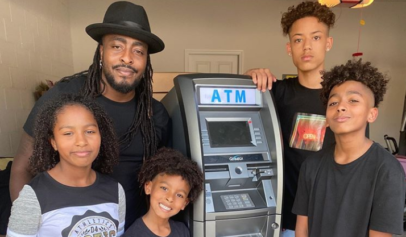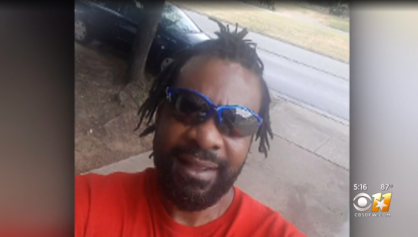If you look at the media, it’s easy to believe all Black man are hypersexualized thugs who impregnate women and then abandon them. But the truth is quite different. There are many examples of responsible Black fathers who are taking care of their children. And this is backed up by statistics. A 2014 Centers for Disease Control and Prevention study showed Black men were often more involved fathers than white and Latino men. The study showed Black fathers of children under the age of 5 were more likely to have prepared meals, played with their children and read to them.
So if that’s the truth, why is there so much negative information put out about Black men?
Dr. Gabe Crenshaw, a professor of psychology at the University of Southern California School of Social Work, says this is deliberate. He says society has a vested interest in demonizing African-American men.
“America tries to paint the picture of us (Black men) like we are these loose cannons who are incapable of a serious relationship, but that’s not true,” Crenshaw said. “I believe it’s by design to always project a negative connotation, particularly when it comes to the family unit and structure in the Black community, to keep it fractured. Unity brings power.”
“It’s easier to write them (Black men) off if they are not contributing to society,” Crenshaw said.
Crenshaw has seen Black men being good fathers in his private practice and in his work with Black churches and mentoring groups.
He cited the example of one his clients, an African-American father who came with his son to counseling sessions promptly every week.
“I saw an immediate change in the son because of the interaction with the father,” Crenshaw said. This is not surprising, because Black men are the products of African-American culture, which is both nurturing and family oriented, he said.
He also pointed out there are many cases of white men who are failing in their responsibilities as fathers, but that’s not talked about because they are the dominant group in society.
“I have dealt with a lot of Caucasian single moms (in private practice) and the sons actually want to call me dad,” Crenshaw said. “They (white boys) are missing out on the paternal engagement process.”
Shawn “Etcetera” McClain, a Brooklyn, New York-based hip-hop artist and actor, said the crisis of absentee Black fathers has been overblown by the media. Although he is divorced from the mother of his two children, he has joint custody and plays an active role in their lives. He is determined to be a positive role model to his children. Etcetera, who has a new album called “Character,” has produced a song called “Wish For,” where he talks about his close relationship with his son.
“I don’t think fathers are as absent as much as they say they are,” said Etcetera, who had a close relationship with his father, even though he was no longer involved with his mother.
According to Etcetera, negativity drives the media.
“The present target is African-American men,” he said. He also criticized shows like “Maury,” which have made millions off portraying Black men as irresponsible. Etcetera said Black men who are being responsible parents are not highlighted by the media.
“The one’s doing good are being overshadowed,” he said.
Etcetera was also critical of reality TV.
“A lot of TV shows focus on depicting buffoonery,” he said.
According to Etcetera, a lot of reality shows are being watched by children without adult supervision. However, most of these shows are scripted and heavily edited to play up outlandish behavior. The problem is children watching these shows can’t tell reality from fantasy, Etcetera said.


